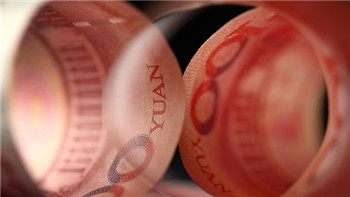
Whether the Chinese renminbi should be permitted to join the Special Drawing Right is one of those questions that appears economically substantive at a distance but rather more politically tokenistic from close up.
中國(guó)的人民幣應(yīng)不應(yīng)該被納入特別提款權(quán)(SDR)貨幣籃子?這個(gè)問(wèn)題從遠(yuǎn)處看似乎是個(gè)純粹的經(jīng)濟(jì)問(wèn)題,但從近處看則在更大程度上具有政治象征性。
For some enthusiasts, the recommendation by the International Monetary Fund (IMF) staff that the renminbi become the fifth member of the basket quasi-currency — along with the dollar, euro, yen and sterling — will boost the Chinese unit’s claim to the status of a global reserve asset.
對(duì)一些熱衷者來(lái)說(shuō),國(guó)際貨幣基金組織(IMF)工作人員建議人民幣加入美元、歐元、日元和英鎊行列,成為構(gòu)成SDR這種準(zhǔn)貨幣的第五種貨幣,將提振人民幣取得全球儲(chǔ)備資產(chǎn)地位的呼聲。
The truth is less dramatic. The IMF staff’s view — very likely to be ratified by its governing board — that the renminbi is “freely usable” and hence can join the SDR is presentationally important. The renminbi will have a new imprimatur of respectability from an institution with which it has often had a tetchy relationship. But it is not a substitute for Beijing continuing to liberalise financial markets and capital flows in order to promote the use of its currency abroad.
真相則不那么具有戲劇性。IMF工作人員的觀點(diǎn) (很可能得到其理事會(huì)的批準(zhǔn))是人民幣“可自由使用”,因而可以加入SDR,這在陳述意義上很重要。人民幣將從一個(gè)與其經(jīng)常關(guān)系緊張的機(jī)構(gòu)獲得一層新的名望。但它不能替代北京方面繼續(xù)開(kāi)放金融市場(chǎng)和資本流動(dòng),以推動(dòng)人民幣在境外得到使用。
For the most part, the SDR remains little more than an accounting device and an obscure class of official reserve assets created under the aegis of the IMF. It is neither a true currency nor a claim on the fund itself. The IMF’s members made much of their creation of nearly $300bn in new SDR assets in 2009 to boost official liquidity as part of the official response to the global financial crisis. Yet the unit has remained little used, and official SDR-denominated assets still have to be changed back into their constituent currencies to be workable. Accordingly they are little use for intervention purposes by central banks.
基本上,SDR仍只是一件會(huì)計(jì)工具,是IMF主持創(chuàng)建的一類讓人費(fèi)解的官方儲(chǔ)備資產(chǎn)。它既不是一種真正的貨幣,也不是對(duì)IMF本身的債權(quán)。IMF的成員國(guó)大吹特吹他們?cè)?009年創(chuàng)建近3000億美元新的SDR資產(chǎn),以提振官方流動(dòng)性,稱其為官方對(duì)全球金融危機(jī)回應(yīng)的一部分。然而,這種單位仍然很少使用,而官方SDR計(jì)價(jià)的資產(chǎn)仍須兌換回其組成貨幣才可用。因此,就央行的干預(yù)目的而言,它們沒(méi)什么用。
Being in the SDR basket is neither a necessary nor sufficient condition for a currency to be widely held in official reserves. Before the SDR was reformed in 1981, 16 currencies were members, including such unlikely global reserve assets as the Iranian rial, to no apparent end. By contrast, the Swiss franc is still quite widely held as an official store of value despite not being a member of the present-day SDR.
要讓某一種貨幣被官方儲(chǔ)備廣泛持有,被納入SDR貨幣籃子既不是必要條件,也不是充分條件。在1981年SDR得到改革前,其成員包括16種貨幣,包括一些貌似不可思議、也沒(méi)有明顯作用的全球儲(chǔ)備資產(chǎn),如伊朗的里亞爾。與此相反,瑞郎盡管不是當(dāng)今SDR的成員,但仍被當(dāng)作一種官方的儲(chǔ)值手段廣泛持有。
If China wishes the renminbi to be widely used as a reserve asset, it needs to be prepared to create large amounts of the currency — as has the US with the dollar — and send it abroad. Beijing’s tight control of capital flows and its apparent fear of a large balance of payments deficit militate against that.
如果中國(guó)希望人民幣被廣泛用作一種儲(chǔ)備資產(chǎn),它就需要準(zhǔn)備好創(chuàng)建大量人民幣(就像美國(guó)大量創(chuàng)建美元那樣),并允許其流向境外。北京方面嚴(yán)格控制資本流動(dòng)及其明顯畏懼大額國(guó)際收支赤字,對(duì)這一點(diǎn)有妨礙。
The decision’s political significance outweighs its economic import. By ruling that the renminbi is freely usable, the IMF has undoubtedly sided with those elements inside the Chinese system — notably the People’s Bank of China — who have consistently and rightly been arguing for Beijing to liberalise capital flows and the currency. Whether or not the decision will keep up the pressure for further deregulation or allow the Chinese government to rest on its laurels remains to be seen, but at least the signalling suggests that Beijing is moving in the right direction.
這個(gè)決定的政治意義超過(guò)它的經(jīng)濟(jì)重要性。通過(guò)裁定人民幣可自由使用,IMF無(wú)疑站在中國(guó)體制內(nèi)某些元素(特別是中國(guó)人民銀行)一邊,后者一貫而且正確地主張北京方面應(yīng)當(dāng)放開(kāi)資本流動(dòng)和匯率。至于這個(gè)決定能不能保持促使中國(guó)政府進(jìn)一步放松管制的壓力,抑或讓它滿足于現(xiàn)狀,人們?nèi)皂毷媚恳源辽傩盘?hào)似乎表明,北京方面正朝著正確的方向前進(jìn)。
Signalling, however, is about as far as this decision goes. Ultimately, the global use of a currency is based not on bureaucratic decisions taken at a supranational level but on national authorities establishing a record in competent monetary and financial policy and on the ready availability of the unit in question.
然而,發(fā)出信號(hào)也差不多是這個(gè)決定的最重大意義。最終而言,某一種貨幣的全球使用,并不取決于在超國(guó)家層面作出的官僚決定,而是取決于有關(guān)國(guó)家當(dāng)局在貨幣和金融政策上樹(shù)立稱職的口碑,取決于相關(guān)貨幣的高度可獲得性。
At the margin, the inclusion of the renminbi in the SDR will be a boost for the forces of liberalisation within the Chinese system, and of the further integration of China within the structures of global economic governance. But anyone expecting the decision to act as an inflection point either for the international use of the renminbi or the credibility of the SDR itself is likely to be disappointed.
至少而言,人民幣被納入SDR將提振中國(guó)體制內(nèi)推動(dòng)開(kāi)放、推動(dòng)中國(guó)進(jìn)一步融入全球經(jīng)濟(jì)治理結(jié)構(gòu)的力量。但是,任何人如果期待這個(gè)決定成為一個(gè)拐點(diǎn)(無(wú)論是對(duì)人民幣的國(guó)際使用,還是對(duì)SDR本身的可信度而言),都很可能會(huì)失望。











